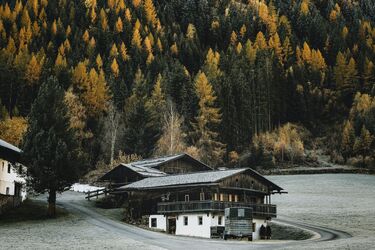What trees have a negative impact on well-being: Folk beliefs

Trees have a significant impact on human well-being. It is crucial to ensure that these trees have a positive influence on the environment, as certain species are believed to absorb energy and potentially bring bad luck.
Folk beliefs suggest that trees possess enormous power and can influence people in various ways. UAportal discusses the potentially detrimental impact of certain types of trees.
Energy-giving trees can quickly uplift your spirits by transforming negative energy into positive emotions. An example of such trees is the juniper, known for protecting homes from theft, dispelling negative energy, and attracting love and prosperity.
Similarly, blueberries symbolize true love and bring good luck if properly cared for. Rowan helps preserve youth, stabilizes hormonal balance in men and women, and protects the home. Pears promote mutual understanding between spouses and enhance the maternal instinct.
Cherries symbolize fertility and prosperity, and apple trees are associated with bringing good luck, especially for young girls. Additionally, the linden tree protects against lightning strikes and helps cope with illnesses.
Conversely, there are trees that absorb energy and can potentially bring bad luck. One such example is the willow tree, which, according to traditional beliefs, represents death, sadness, and bad luck. Therefore, it is recommended not to plant willows near houses.
Similarly, thuja trees were once considered symbols of grief and hopelessness and are often found in cemeteries. According to ancestral beliefs, planting thuja near the homes of young girls scares away potential suitors and brings loneliness.
Aspen, a robust tree known for its energetic properties, has both positive and negative energy. According to beliefs, it can weaken the human body and attract diseases. Additionally, certain tree species can cause damage to buildings, so they should be avoided near residential structures.
Oak trees, due to their large size and extensive root system, are not recommended for planting near houses. Despite their positive symbolism, these tall, spreading trees require ample space.
For safety reasons, it is not recommended to plant conifers close to the walls of a house or other structures. Not only do they dehydrate the soil within a five-meter radius, but many species also grow to a considerable height and are rich in resin. These properties make them susceptible to attracting lightning strikes, significantly increasing the risk of fires in buildings.
If you want to get the latest news about the war and events in Ukraine, subscribe to our Telegram channel!
